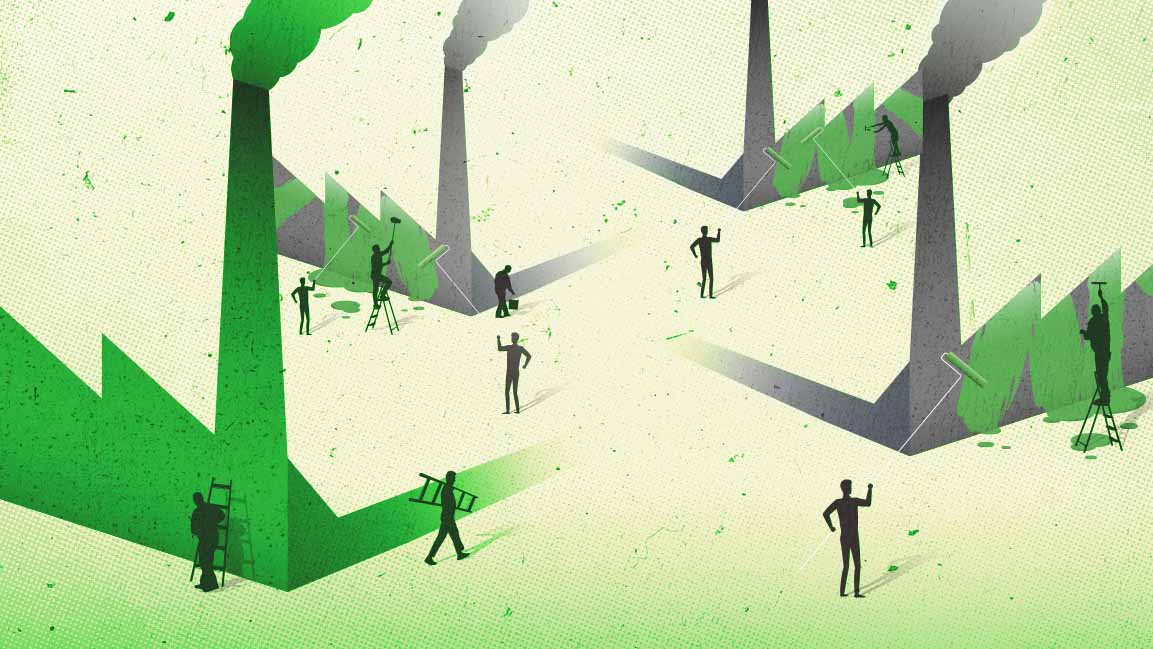- | 9:00 am
Is climate anxiety impacting young people’s mental health in the Middle East?
Experts warn cases of eco-anxiety will rise as climate-change-related problems increase

Twenty-one-year-old Khaled Nasser feels “helpless” and “anxiety-ridden” when he thinks about the future and the irreversible damage occurring because of climate change. Temperatures are soaring; floods are becoming more regular, and persistent water scarcity is predicted to devastate Middle East and North Africa’s (MENA) food and water production systems.
Without drastic action, Nasser feels that his generation will be left to deal with the climate crisis in an increasingly damaged world.
Ted Chaiban, UNICEF Regional Director for the Middle East and North Africa, calls the region world’s most vulnerable to climate change as it is warming at twice the global average.
Psychologists and life coaches have observed that people in the region are experiencing climate anxiety, causing severe mental stress. The extent of the problem is such that it has started affecting peoples’ major life decisions.
While climate anxiety affects a spectrum of the population, the youth are the ones who are suffering the most. A Lancet paper published in December 2021 found that 59% of the youth aged 16-25 years in the ten countries surveyed for the study were extremely worried about climate change.
More than 50% reported feeling sad, anxious, angry, powerless, helpless, and guilty, while over 45% of respondents said their feelings about climate change negatively affected their daily life and functioning. Around 75% of the respondents think the future is frightening, and 83% said that people have failed to care for the planet.
SIGNS OF CLIMATE ANXIETY
Mental health challenges due to climate change can arise from direct experiences with climate events and from concerns about the overall impact of global warming. Nathan Farrugia, Managing Director of Vistage, has observed that the youth feel that climate change isn’t a primary concern for the older generations, which exacerbates their anxiety.
Dr. Saliha Afridi, Clinical Psychologist and Founder of The Lighthouse Arabia, says that because climate anxiety is not a specific diagnosis such as major depressive disorder or generalized anxiety disorder, it is hard to track how many people struggle with eco-anxiety. But she says it adds to existing problems in her patients.
“Eco-anxiety can lead to a range of mental health issues, including stress, anxiety, depression, feelings of grief and loss, and post-traumatic stress disorder (PTSD) in severe cases. In some cases, the fear of the future due to climate change can contribute to existential dread.”
She further says the issue adds to the people’s general anxiety about the uncertainty of the future, making them feel they lack control over the situation and feel guilty about being responsible for contributing to climate change. Feelings of anxiety, helplessness, hopelessness, and guilt are exacerbated as they witness the destruction caused by natural disasters.
Hiba Balfaqih, a co-founder of The Smash Room, an innovative way to release stress by breaking things, says people with climate anxiety experience changes in their behaviors and attitudes.
“Some common behavioral changes they undergo include increased stress levels and difficulty coping with everyday life. Some people may also experience headaches, fatigue, and insomnia,” she adds.
Seconding Balfaqih’s views, Dr. Lucy Bolton, Assistant Professor in Business Psychology at Heriot-Watt University Dubai, says people might experience mild or severe psychological impacts of climate change.
While there is no available data on the exact prevalence of eco-anxiety, as people do not necessarily share their feelings on the matter, Bolton says the number of individuals experiencing this phenomenon is expected to increase with climate-related issues.
AFFECTS MAJOR LIFE DECISIONS
When eco-anxiety takes a toll on mental health, it affects people’s major life decisions like family planning, choosing their domains of work, and moving to a new place.
In a survey by GlobeScan 2022, around 40% of the global population cites climate change as the reason for not having children. Around 61% of the population of Egypt and 54% of Türkiye also feel that it is best not to have children because of the effects of climate change.
Bolton says the surge in news and social media coverage of extreme weather events like floods, storms, and cyclones harms individuals’ psyches.
“This can lead to functional impairment, where concerns about climate change interfere with an individual’s ability to fully participate in work, school, or personal relationships. Major life decisions can be made based on such anxieties as where to live, family planning, financial investments, community involvement, how they travel, consume, and live their lives,” says Bolton.
While many effects of climate anxiety are negative, it can also force some vital lifestyle changes, making individuals more environmentally responsible. “Climate anxiety can be a strong driver of change, but it can also affect mental well-being, leading some individuals to stop traveling, reduce social interactions, and experience undue pressure,” says Farrugia.
Experts say many people consider lifestyle changes to accelerate action to tackle the situation to prevent further environmental harm. Reducing waste, selecting climate-friendly products and services, minimizing their carbon footprint by choosing a plant-based diet, reducing meat consumption, flying less or buying electric vehicles, and choosing renewable energy sources can help individuals fight climate anxiety.
Bolton observes that in the MENA region, some individuals have actively started developing strategies to address climate change in areas with extreme heat and water scarcity due to climate anxiety.
“It is crucial to view these intense emotions as a powerful force that individuals can channel to effect positive change and create a better world,” she says.
COPING WITH ANXIETY
Experts feel climate anxiety is not recognized as a serious issue, preventing conversations around it. It must be addressed to develop coping mechanisms for affected individuals.
“Taking constructive action can be useful, including practicing self-care activities to reduce feelings of anxiety and stress, such as mindfulness, meditation, exercise, and coaching. Therapy can be a supportive form of help to address mental health concerns and allow the development of individual coping strategies,” Bolton says.
Farrugia finds it essential to speak about climate change in a way that encourages widespread change. “Every individual’s contribution, no matter how small it may seem, is important. At the same time, being overly anxious isn’t helpful, as it may cloud our vision and delay action; it is wiser to spend our efforts focusing on solutions and encouraging changes in lifestyle with the people around us.”
It is the time to start conversations around climate anxiety as the number of individuals experiencing it will increase further in the coming years. Experts advise those experiencing climate anxiety to focus on taking positive action toward reducing their carbon footprint through lifestyle changes such as reducing plastic usage, conserving water, and using public transportation instead of driving. Developing redressal mechanisms to deal with eco-anxiety through therapy is equally critical.








































